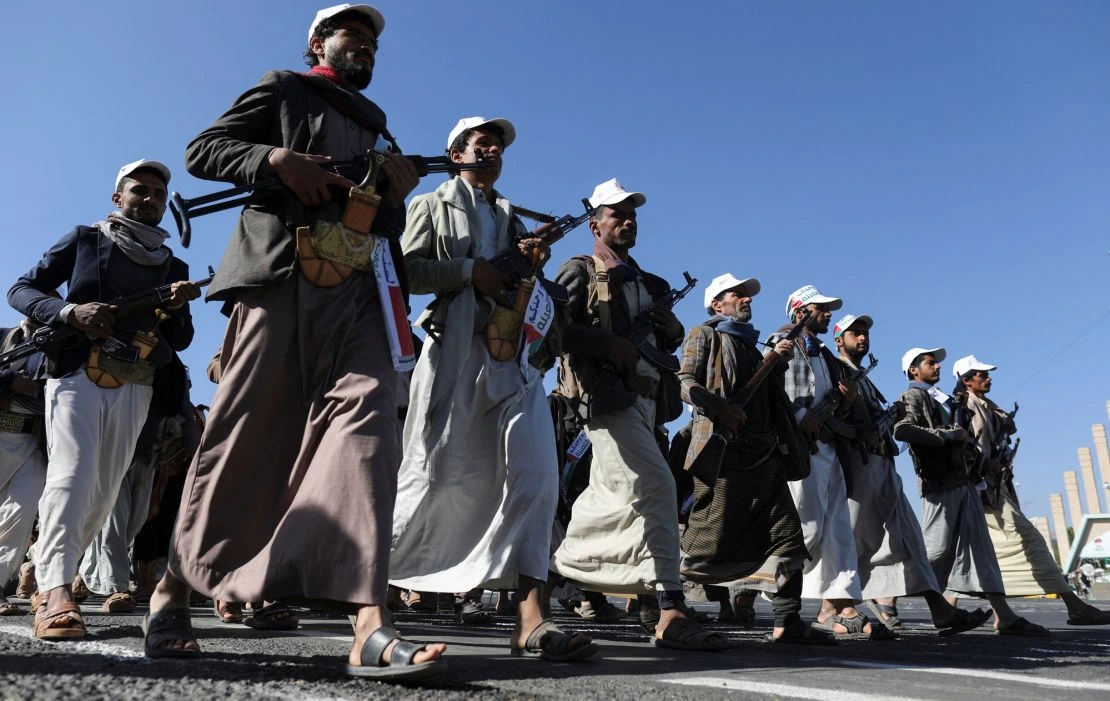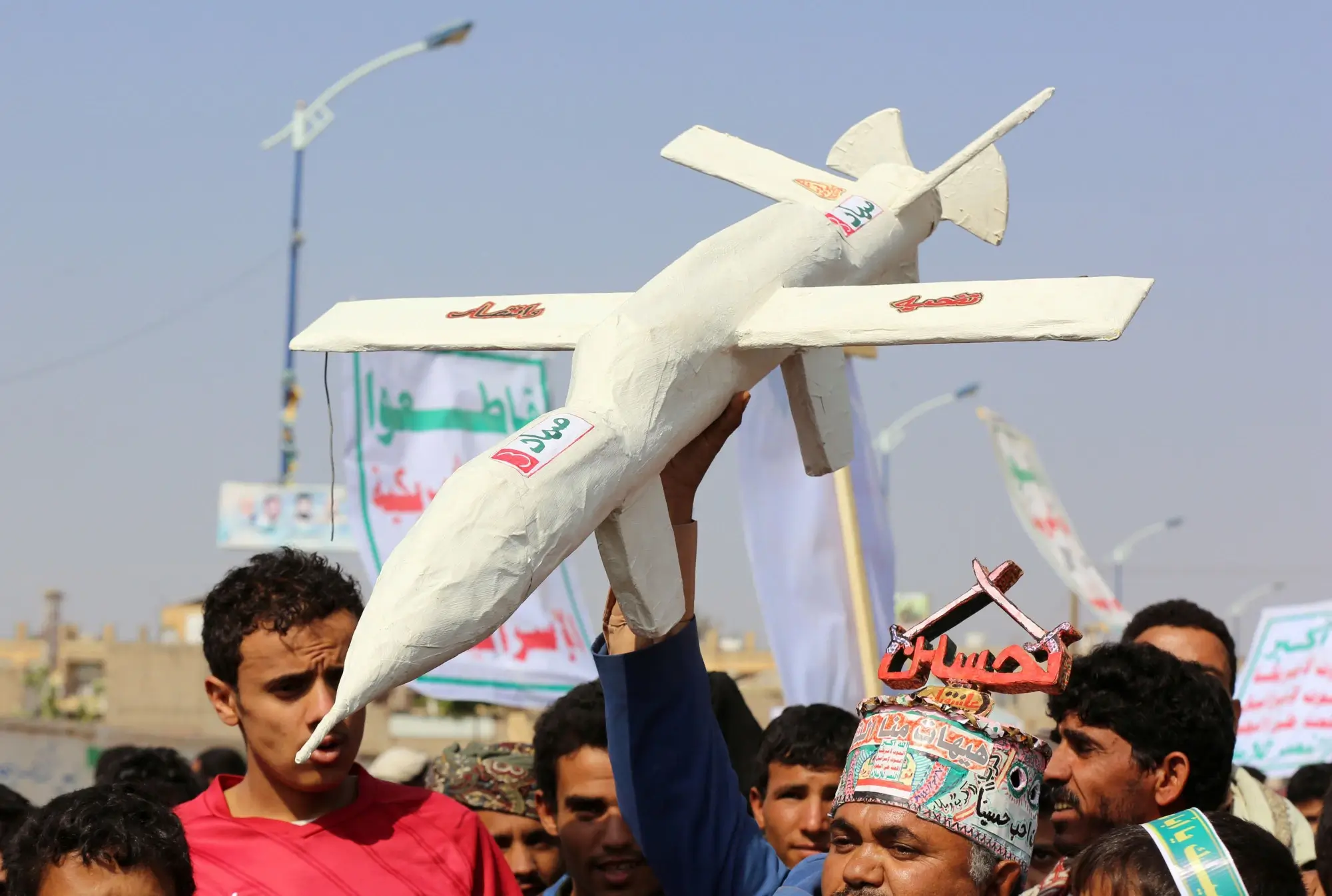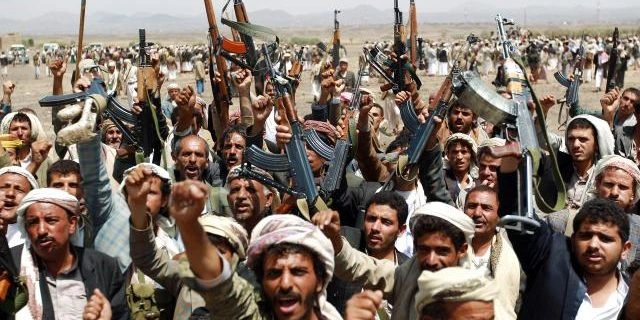In a shocking escalation of the worst Mideast sea conflict in decades, Yemen’s Houthi rebels have fired a missile at a US warship. This brazen attack highlights the increasing tensions in the region and raises concerns about the safety of international waterways. The targeted warship, which was located in the Red Sea, managed to intercept and destroy the missile, averting a potentially catastrophic outcome.
However, this incident underscores the volatile nature of the conflict in Yemen and the growing threat posed by the Houthi rebels. The situation in Yemen has been deteriorating for years, with the rebels fighting against a Saudi-led coalition that supports the Yemeni government. As the conflict intensifies, the risk of further attacks on international shipping and neighboring countries cannot be overlooked. The world watches with bated breath as the repercussions of this missile strike reverberate throughout the Middle East.

Page Contents
- 1 Overview of Houthi rebels and their role in the conflict
- 2 The missile attack on the US warship
- 3 Escalation of the conflict and its implications
- 4 Response from the US and other countries
- 5 Impact on regional stability and international relations
- 6 Humanitarian crisis in Yemen
- 7 Houthi Rebel: Efforts for peace and resolution
- 8 Houthi Rebel: Analysis of the situation and future prospects
- 9 Call to action for international involvement
- 10 Author
Overview of Houthi rebels and their role in the conflict
The Houthi rebels, also known as Ansar Allah, are an armed group that originated in northern Yemen. They belong to the Zaidi sect, a branch of Shi’a Islam, which constitutes a minority in the predominantly Sunni Yemen. The Houthi movement emerged in the early 1990s, advocating for the rights of the Zaidi community and challenging the Yemeni government’s authority.
Over time, they gained support from disaffected groups and expanded their control, eventually taking over the capital, Sana’a, in 2014. This power grab led to a full-scale conflict between the Houthi rebels and the Yemeni government, which escalated with the intervention of a Saudi-led coalition in support of the government. The conflict has since spiraled into a complex and protracted war, with devastating consequences for Yemen’s civilian population.
The missile attack on the US warship
On [insert date], the Houthi rebels carried out a daring missile attack on a US warship in the Red Sea. The missile was fired from a coastal area in Yemen and targeted the warship, which was patrolling international waters. The attack came as a shock to the international community, highlighting the Houthi rebels’ ability to strike at significant military assets in the region.
Fortunately, the warship’s defense systems successfully intercepted and destroyed the missile, preventing any casualties or damage. However, the incident serves as a stark reminder of the escalating tensions and potential risks in the region. The Houthi rebels’ audacious move raises concerns about the safety of international shipping and the possibility of further attacks on naval vessels operating in the area.
Escalation of the conflict and its implications
The missile attack on the US warship marks a significant escalation in the conflict between the Houthi rebels and the Saudi-led coalition. It further exacerbates the already volatile situation in Yemen and raises the stakes for all parties involved. The conflict, which has been ongoing for years, has claimed thousands of lives, displaced millions, and pushed the country to the brink of collapse.
The Houthi rebels, backed by Iran, have been fighting against the internationally recognized government of Yemen, which is supported by a coalition led by Saudi Arabia. The conflict is not only a battle for power in Yemen but also a proxy war between regional powers vying for influence in the Middle East. The missile attack on the US warship highlights the danger of the conflict spilling over into international waters and drawing in other countries, further complicating an already complex situation.
Response from the US and other countries
Following the missile attack, the United States condemned the Houthi rebels’ actions and vowed to defend its interests and those of its allies in the region. The US has been providing logistical and intelligence support to the Saudi-led coalition since the beginning of the conflict. In response to the attack, the US Navy conducted a series of retaliatory strikes against Houthi rebels-controlled radar installations along the coast of Yemen, aiming to degrade their ability to target international shipping and further threaten regional stability.
The international community, including countries in the region and the United Nations, expressed their concern and called for an immediate cessation of hostilities. However, finding a diplomatic solution to the conflict remains a daunting task, as the parties involved have shown little willingness to engage in meaningful dialogue.
Impact on regional stability and international relations
The missile attack on the US warship has far-reaching implications for regional stability and international relations. It further fuels the ongoing conflict in Yemen and exacerbates tensions between Iran and Saudi Arabia, who are locked in a broader struggle for influence in the region. The attack also raises concerns about the safety of international shipping through the Red Sea and the strategic Bab el-Mandeb strait, which connects the Red Sea to the Gulf of Aden and is a crucial maritime route for global trade. Any disruption to this vital waterway could have severe economic consequences and potentially escalate the conflict further.
The international community must work together to find a peaceful resolution to the Yemeni crisis and prevent the situation from spiraling out of control.
Humanitarian crisis in Yemen
The conflict in Yemen has caused one of the world’s worst humanitarian crises. The ongoing fighting, coupled with a blockade imposed by the Saudi-led coalition, has resulted in widespread hunger, malnutrition, and the spread of preventable diseases. Millions of Yemenis are in urgent need of humanitarian assistance, including food, clean water, and medical supplies. The destruction of critical infrastructure, such as hospitals and schools, has further exacerbated the suffering of the civilian population, particularly children. The international community must prioritize humanitarian aid and work towards ending the conflict to alleviate the immense human suffering in Yemen.
Houthi Rebel: Efforts for peace and resolution
Despite the grim situation, there have been sporadic efforts to find a peaceful resolution to the conflict. The United Nations has been leading diplomatic initiatives, including brokering ceasefires, facilitating negotiations, and calling for a comprehensive political solution. However, progress has been slow, and previous attempts at peace have faltered due to the deep-seated mistrust between the warring parties and their external backers. Nevertheless, the international community must continue to exert pressure on all parties involved to engage in meaningful dialogue and reach a lasting agreement that addresses the root causes of the conflict and ensures the well-being of the Yemeni people.

Houthi Rebel: Analysis of the situation and future prospects
The missile attack on the US warship underscores the complex and volatile nature of the Yemeni conflict. The involvement of regional and international actors, competing interests, and ideological differences make finding a solution a daunting task. The conflict is not only a humanitarian disaster but also a threat to regional stability and international security. The international community must recognize the urgency of the situation and invest in long-term solutions that address the underlying grievances and promote inclusive governance in Yemen. Without a comprehensive and sustainable peace agreement, the conflict is likely to continue, perpetuating the suffering of the Yemeni people and posing a risk to global peace and security.
Call to action for international involvement
The missile attack on the US warship is a stark reminder of the urgency of finding a peaceful resolution to the conflict in Yemen. The international community cannot afford to ignore the escalating tensions and the potential risks to regional stability. Immediate action is needed to de-escalate the situation, ensure the safety of international shipping, and address the dire humanitarian crisis in Yemen. Diplomatic efforts must be intensified, and all parties involved must be held accountable for their actions. The world must come together to support the Yemeni people and work towards a lasting peace that will bring an end to their suffering and lay the foundation for a prosperous and stable future. The time for action is now.
If you found this article informative and thought-provoking, we invite you to explore our in-depth coverage on another pressing topic – the Samsung Galaxy Z Fold 4. Discover the latest advancements in technology and innovation by reading our article on this exciting development in the world of smartphones. Your support and interest in our content are greatly appreciated.










